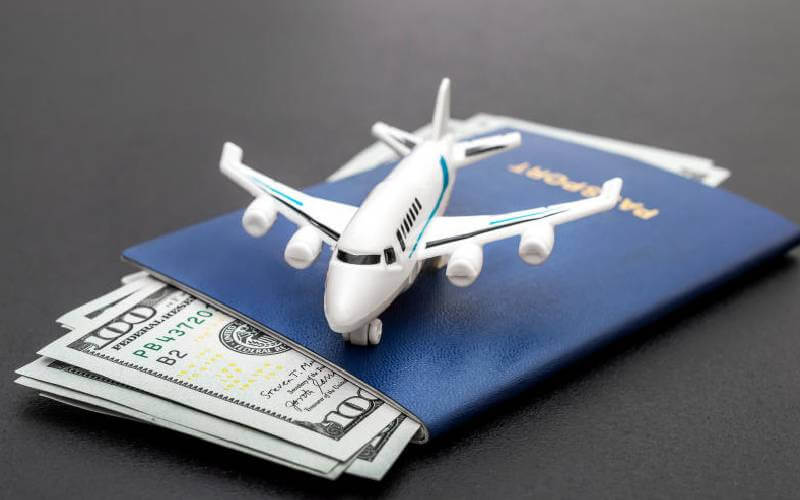
Our Projects are
Transforming African Trade
Quick Contacts
2nd Floor, Fidelity Insurance Centre Waiyaki Way, Westlands

Issuance of passports for free to East African Community (EAC) citizens is one of the practices that can boost air travel in the region, a study published by A regional private sector lobby suggests.
Airlines in the region can also consolidate, going the European or American way, which the study by the East African Business Council (EABC) notes, would stimulate passenger and cargo movement by air.
The study, which analyses aviation laws, reports and academic publications, pokes holes into the current industry practices against the cost of operations and the push for open skies initiative.
It is titled Study on Air Space Liberalisation in the East African Community: Focus on Cost Drivers and Regulations.
The study, commissioned by EABC in partnership with Trade Mark East Africa and funded by Kenya’s Ministry of Foreign Affairs and the Dutch government, focused on six areas – operational costs, existing air transport regulations in EAC, effects of domesticated EAC space, benefits of adoption of the EAC Single Space Agreement and the impact of aviation costs on cargo volumes and evaluation of best practices in other regions.
It argues that airline consolidation, mergers and acquisitions in the United States and Europe resulted from the need to stimulate growth within the industry.
“It is a practice that can be adopted,” reads the study. It documents that from 2000 to 2010, the US airline market consolidated into four airlines.
The study also notes that the same trend is slowly being replicated in Europe.
“The Air France-KLM merger, which took place on May 5, 2004, rekindled European airline’s interest in consolidation. The EAC can adopt and consolidate airlines to increase their competitiveness globally,” it states. The study measured air transport competitiveness as assessed in the World Economic Forum by looking at airport connectivity and efficiency.
“The rankings indicate that on average, EAC countries are ranked low in terms of competitiveness indicators,” the study says. The region also has limited infrastructure, which is a challenge to the air transport sector. The study cites South Sudan, which lacks full control of its airspace due to a lack of well-developed infrastructure and qualified personnel.
“In Burundi, the number of flights to Bujumbura is limited, compounded by a lack of a national carrier, which contributes to an increase in the cost of air transport,” notes the study.
South Sudan’s challenges are also exacerbated by insecurity.
The study has also faulted the lack of harmonised charges, fees and taxes imposed by the respective national regulations and authorities. It notes that Juba International Airport is the most expensive airport in the EAC region with an airport tax on passengers of sh18,300 (USD 122).
“The charge is more than twice the departure taxes charged by the different partner states,” the study says.
Entebbe International Airport charges $50.6 (Sh7,500) for every departing passenger, with$40 (Sh6,000) as passenger service charge and $10 (Sh1,500) as security charge and $0.6 (Sh90) as passenger handling charge.
Jomo Kenyatta International Airport (JKIA), on the other hand, charges a passenger service fee of $50 (Sh7,500) for every departing passenger and does not charge extra charges for security and passenger handling services. Julius Nyerere International Airport for its part, charges a passenger service charge of $37 (Sh5,550) and a security charge of $10 (Sh1,500).
Bujumbura International Airport and Kigali International Airport have the lowest passenger departure charges of $40 (Sh6,000) and $42 (Sh6,300) respectively.
The study found out that ticket prices also vary greatly even for the same distance and same airline if the departure time is different or if the ticket is booked at different times.
Ticket prices are even higher if there is a connection involved.
“EAC member states such as South Sudan and Burundi with limited direct flights and without national airlines, were generally found to have high average ticket prices,” the study says. It documents that the ticket price per kilometre in the EAC region is more than twice the ticket price for destinations in Europe and other countries in Africa.
“The average ticket price per kilometre in the EAC is Sh58 ($0.39 )/km compared to only $0.21 (Sh30)/km in other African countries and $0.12 (Sh18)/km for destination airports in Europe, Asia and the Middle East,” the study adds.
The study notes that there are so many barriers to a vibrant air travel ecosystem and they need to be “knocked down.”
Some of these include reviewing check-in times. “Most passengers are tired of getting to the airport so early; let’s cut bag-free, pre-screened short-haul flyers some slack and allow them a 20-minute window to check in,” reads the study. The study recommends the implementation of visa waiver programmes in all countries where most business and tourism come from to spur air transport in the region.
Read original article
Disclaimer: The views and opinions expressed in this article are those of the authors and do not necessarily reflect the official policy or position of TradeMark Africa.